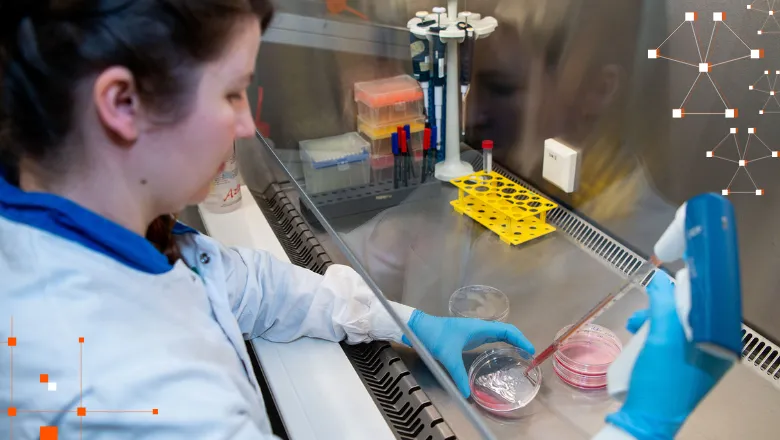In a recently published white paper, researchers from King's College London and Erasmus MC, Rotterdam investigate the use of radioactive cancer-targeted drugs to improve cancer treatments and call for further funding support.

The partnership combines the strengths of the UK and the Netherlands in science and health technologies to accelerate research and optimise patient care. Leveraging existing similarities in each country's healthcare systems would allow for better and faster clinical trials.
Radioactive drugs can be used to specifically deliver a radiation dose to cancer cells which produces a therapeutic effect. They can treat not only the disease areas identifiable on medical scans but also can specifically target the microscopic tumour deposits spread across the body, involved in progression of the disease.
By harnessing the precision of radioactive elements, radioactive cancer-targeted drugs enable personalised, potent, minimally invasive treatments that transcend the limitations of conventional cancer therapies.
Working on better understanding what different forms of radioactivity does to cancer cells as well as our healthy tissues can turn treatments that currently aim to prolong life by a bit or enhance a patient's quality of life to potentially a curative scenario where the person no longer has cancer. This is what we are passionate to help achieve
Dr Samantha Terry, Reader in Radiobiology, King's College London
The white paper outlines three strategic recommendations to achieve this ambition:
- Strategically allocate funding to enhance mechanistic understanding of targeted radioactive drugs.
- Facilitate UK-NL clinical trials in targeted radionuclide therapies.
- Coordinate training initiatives.
To optimise existing treatments and develop new personalised ones, many unknowns still need to be investigated.
"In order to improve the effectiveness of radionuclide therapy, it is crucial to gain a deeper understanding of the relationship between radiation dose and observed biological effects. For this to happen, many scientific unknowns in radiobiology, dosimetry, and radiation response still need to be answered, which require additional investment in scientific research," says Dr Julie Nonnekens, Associate Professor in Radiobiology of radionuclide therapy, Erasmus MC, Rotterdam, The Netherlands.
Now is the time to invest in the science to ensure that when these new radioactive drugs are implemented, we get the treatments right for patients.
Dr Julie Nonnekens, Associate Professor in Radiobiology of radionuclide therapy, Erasmus MC, Rotterdam, The Netherlands.
Marjolein Bouwers, Chief Innovation Advisor, Netherlands Embassy London, is excited about the opportunities this white aper presents. "To boost further innovation in this field, public-private partnerships and the availability of funding mechanisms across all different stages of the supply chain are essential. It is great to see this White Paper pointing out scope for intensified NL-UK collaboration and we fully support follow-up initiatives to bring together both ecosystems." she says.
Researchers are collecting endorsements to demonstrate to policymakers and funders alike that targeted radionuclide therapy is a crucial area of research that requires investment.
Read the full white paper titled 'Unlocking the full potential of cancer treatments using targeted radionuclide therapy through Netherlands-UK partnerships' or show your support here.







